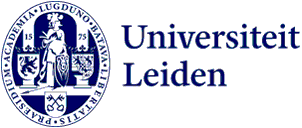
‘Everyone will benefit from rules in space’
From a billionaires’ space race to the launch of tens of thousands of minisatellites: space is becoming busier than ever. This means more than enough work for Tanja Masson-Swaan, an assistant professor at the Institute of Air and Space Law at Leiden University. Because who makes the rules and makes sure everyone sticks to them?
This interview was previously published in the LDE Universities magazine. LDE is partnership between the universities of Leiden, Delft and Rotterdam.
‘Space is of enormous strategic value,’ says Masson-Zwaan ‘So rules are to everyone’s benefit. Developments in space travel are happening fast, especially with the ongoing commercialisation. I consider it a privilege to help establish a safe, sustainable and clear legal framework for this dynamic and interesting field.’
Space traffic management
As a member of a large European research consortium, Masson-Zwaan is currently devoting much of her time to space traffic management. ‘It’s not just about space debris and collisions. The tens of thousands of small satellites launched by commercial companies can affect astronomical observations from earth, such as those carried out by the Leiden Observatory, our sister institute.’
The International Institute of Air and Space Law recently hosted a working group on the governance of space resources, such as water on the moon. ‘The priorities in the Netherlands are more about developing instrumentation for space research. But if students want to build a small rover and land it on the moon, we should definitely encourage them.’
Start-ups
According to Masson-Zwaan, space law plays an important role in supporting, protecting and promoting innovation because a clear legal framework provides certainty for companies. ‘Now more than ever, companies and start-ups scrutinise the applicable laws and rules of a country before deciding to invest.’ She expects the LDE Space for Science and Society programme to serve as a network for researchers and students from various disciplines, as related to both education and entrepreneurship. ‘These young people are eager to start new companies. Having good contacts and knowledge of all aspects– legal, technical and entrepreneurial – is very useful when that time comes.’
About Tanja Masson-Zwaan
The day after graduating from law school, Tanja Masson-Zwaan started her job at the newly founded International Institute of Air and Space Law at Leiden University. She subsequently spent a few years working as consultant and in other capacities before returning to that same institute as assistant professor and deputy director. She was also on the board of the International Institute of Space Law for 25 years.
International allure
For Masson-Zwaan, the Space for Science and Society is a programme with international allure. ‘It unites three universities, each with unique qualities. Our advanced Master’s in Air and Space Law is almost unparalleled in the world, Delft has made a name for itself in space technology and engineering, and the same is true about entrepreneurship for the Rotterdam School of Management. This programme has what it takes to make a mark on the world.’
